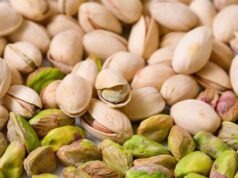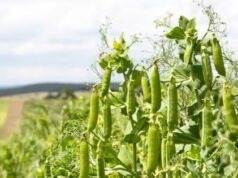Organic farming is a process that is used by farmers to cultivate plants and rear animals in natural ways. The process of organic farming includes biological materials, and it avoids the use of synthetic substances with a view to reducing spill fertility and maintaining socio-ecological balance.


Benefits to consumers
Provides more nutrition – Organic farming food has a higher value of mineral content which is the basic factor in considering the nutritional value of food as organic farming increases the life of the soil and captures its value. Suppose farmers are growing healthy plants that do mean healthier people. A plant that gets better nourishment will provide better nourishment to people.
No use of Chemicals – This is a significant benefit to consumers that it provides organic food which is free from any contamination of chemicals or pesticides, fungicides or herbicides. The food created from organic farming is tastier than conventional food. The taste of food is directly related to the content of sugar in it, which is the main factor in turning nutrition quality of that plant had.
The quality can be tested on fruit and vegetables through juice to Brix analysis, and their score is most commonly used to check the quality before expert checking.
More Food Life – The organic plants are taken care of naturally, not by heavy chemicals, which results in structural and metabolic integrity of its cellular structure, which is superior to the plants which are conventionally grown. So, the organic plant has a high storable value and does not possess any rooted or rapid mould to its susceptibility.
Benefits to Farmers
The plant grown by organic farming is free from disease and pest resistance. It does not have any chance of getting it as it was grown in balanced soil resistance.
Strengthening of Weeds – Weeds are nature’s attempt to save and heal the damaged soil, or it is a natural band-aid. When farmers enhance the life of the soil and perform organic agriculture activities with improved conditions, that dissuades many weeds making crops more healthier, which is favourable. The crops which are healthier have more competing strength with the weeds that are already present.
Low cost of Input – As it is clear that organic farming does not include the use of any chemicals or pesticides. Therefore, the expense of building crops gets lower as farmers do not use expensive pesticides and herbicides, which is more excellent resistance to crops.
Resistance from Drought – The plants that are grown organically is more resistant to drought. As chemical fertilizers force plants to imbibe all the time when they are thirsty as it is soluble. The plants can have good growth if they are getting the right amount of water. But if water becomes scarce, then chemically fed plants with the soluble nutrition salts draw sufficient amounts of water in order to maintain safe dilution. More, they soon reach a level of toxic concentration where plant growth stops and dies early than organically farm food.
Add More Value – There are various people in the market who are well aware about the quality of organic food, and they are ready to pay a premium price for it.
Organic farming of food provides benefits of higher food production without reducing its value or quality. Moreover, it ensures environmental sustainability not only now but also for future generations as well. Swaraj 744 has various advanced features that can be used by farmers at the time of organic farming, which will increase productivity as well.
Disadvantages
Proponents of productivity in industrialized agriculture can result in superior productivity. However, without using chemical fertilizers, it is hard to maximize farm efficiency. When farmers are continuously using industrialized agriculture, it reduces the life of soil to a point where it can no longer have the ability to grow organic food. Productivity can only be increased by chemical input, which has the same flogging as a dead horse.
Time- We know the fact that organic farming requires more integration of farmers to observe their crops. It is not possible to grow crops in a shorter period of time. It is not possible to meet the food requirements of the country if farmers will keep based on organic farming.
Organic growers are not using engineered food crops that are produced to tolerate herbicides. Based on a report, productivity attained by GM crops is harmful to both human health and the environment.
To do farming organically, a farmer requires more labour and skills because this type of farming requires more time to observation on crops and living things. Moreover, they do not have any chemicals to use in order to protect, and they can only perform careful observation in order to know how to manage their farming system rather than putting plastic on it.
When in a short period, organic farming cannot be considered the right choice. For more blogs in this regard, stay with our website.








